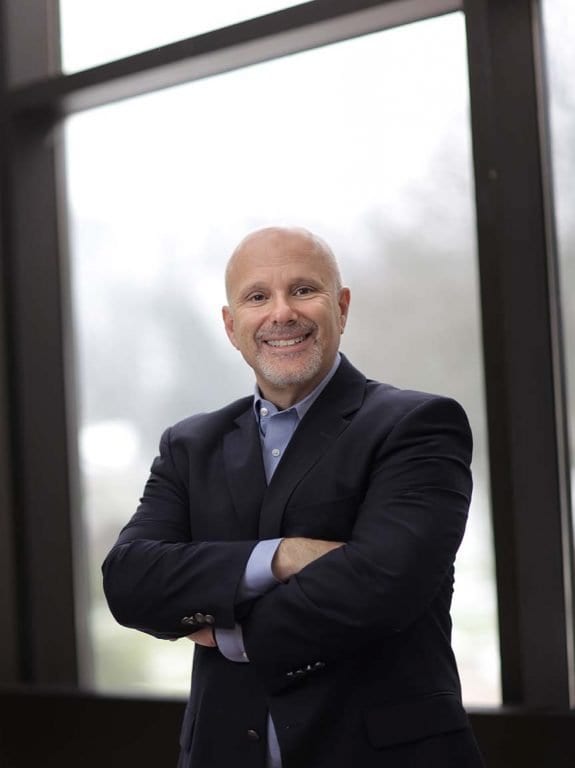Money: Stop Blaming Capitalism, the Government and Rich People

Audio By Carbonatix

Courtesy of Jay Gershman, Retirement Visions LLC
Sponsored advertising content provided by Retirement Visions LLC
By Jay Gershman, Retirement Visions LLC, West Hartford
Stop pointing the finger at the government, capitalism, and rich people and open up The Millionaire Next Door.

Jay Gershman. Courtesy image
Smaller than anticipated tax refunds are dominating the news, and it’s true that refunds are lower – around 8 percent according to The Washington Post. But what strikes me as interesting is that while people become irate about less money in their pockets, they are also less prepared to fund an emergency or stay on top of their bills. In fact, recent headlines by CNN Money highlighted that 40 percent of Americans can’t cover a $400 emergency and the New York Federal Reserve Bank reported that seven million Americans are currently more than 90 days late on their car loans.
All of this in an economy that’s supposed to be thriving.
It would be easy to point to the wealth gap for our economic imbalance. The supposed culprit is usually hailed as out of control Capitalism and greedy corporations. Grabbing these headlines, politicians Bernie Sanders, Chuck Schumer, and Marco Rubio propose legislation that will discourage corporations from buying back their stock and encourage higher dividends.
Meanwhile, freshman Congresswoman Ocasio-Cortez proposed a 70 percent marginal tax rate while Bernie Sanders floated a 77 percent estate tax on billionaires. Unfortunately, it appears that these politicians have not read Thomas Stanley’s 1996 bestselling book, The Millionaire Next Door.
While admittedly, I have not re-read the book recently, Stanley discusses seven traits that the “people next door” have in common which allows them to accumulate substantial wealth while living normal, everyday lives. The strategies put into place, such as driving an older car for longer instead of leasing and taking on debt, are available to everyone, regardless of their income level and social status.
As a financial advisor, I have personally witnessed the disparity between a young worker who refused to contribute to a 401(k) and thereby missed out on a 3 percent employer contribution, while an older co-worker had amassed a $1 million account by the age of 60. It’s too easy to blame others for a lack of planning and preparation. It’s too easy to blame greedy corporations for taking care of shareholders and not employees. It’s too easy to blame rich people even though they are constantly asked to pay more state and federal income tax in addition to sales tax, social security, and estate tax.
However, it’s not difficult to make small changes to improve your financial situation and control your own fate. Here’s a list of 10 things anyone can do to turn small changes into large differences:
- Pre-plan your household food expenditure and use memberships to Sam’s Club, Costco, or BJ’s to save.
- Stop using your debit card and start building rewards points that can be used for travel or rebates.
- Review your cable and mobile phone bills regularly to reduce your monthly expenses. Try to stretch the age of your mobile phone to avoid an additional monthly fee.
- Pack a lunch to avoid the expense of eating out often.
- Drop an expensive habit. Reduce or eliminate your consumption of cigarettes or alcohol and say goodbye to gambling, boating, or country clubs.
- Add just a little more of your pay to your 401(k). Remember, being a 401(k) investor makes you a shareholder who benefits from those “greedy” corporations.
- Be sure that financial risks are minimized by having enough life and disability insurance.
- Buy a used car and hold onto it for longer. Enough said.
- Keep your debt under control and build a two-month cash reserve. Start by tracking your debt and reward yourself for progress.
- Don’t rationalize your bad behavior by convincing yourself that you won’t live to see retirement. Being wrong can be painful.
Here’s the bottom line. The problem isn’t Capitalism. The problem isn’t taxes. The problem is you and the solution is within your control. Regardless of your current financial situation, small changes can move you towards being the quiet, wealthy neighbor who will live comfortably for the rest of your days.
Jay Gershman is the Owner and Founder of Retirement Visions LLC, a West Hartford-based financial planning firm that focuses on comprehensive life planning and financial management. For more information, visit www.allset2retire.com. Information and advice are for guidance only and opinions expressed belong solely to the author. Securities offered through Securities Service Network, LLC. Member FINRA/SIPC. Fee based services are offered through SSN Advisory, Inc., a registered investment advisor.
Like what you see here? Click here to subscribe to We-Ha’s newsletter so you’ll always be in the know about what’s happening in West Hartford!




I agree with this author. When will the “West Hartford liberal elite” wake up. Tax and spend policies, making our state unfriendly for business, and high taxes are driving people out of town. West Hartford is becoming unlivable as is most of Connecticut. The state car tax, in lieu of a town car tax, will be great for west Hartford residents with a mill rate of under 20. Lost revenue town of West Hartford? Figure out how to trim the fat!!
“Trim the fat” would inevitably lead to lower home valuations for our residents. I came to West Hartford for the same reason many others do: because it is a good place to raise a family. The bulk of town revenue goes to funding programs that make the town attractive to families. Safety services, library programs and parks, curbside collection, and above all else, schools. These are the expenditures that would suffer if the town budget is slashed.
West Hartford is provably not “unlivable”. Far from being unlivable, it’s one of the best towns in Connecticut. Demand remains high for homes in town. Bidding wars are common. Prices are driven by demand. Less demand from families eager to enjoy town services, the less the properties are valued.
Your inflammatory “liberal elite” label is nonsensical. West Hartford residents know exactly what they are paying for. You’ve regurgitated right wing talking points with no real basis. As a literal, real-world counterpoint, I invite anyone to stop by the Webster Library children’s floor on any given afternoon.
Thank God this “article” is a paid advertisement. If this was presented as a real article, I would have had to seriously question the judgement of the we-ha.com editorial staff.
Americans are bad at saving. Historically, they could rely on pensions, Social Security, and their home value to take care of them from retirement through to the end of their lives. The weakening of organized labor has seen the near disappearance of pensions, and nobody working now can count on Social Security payments rising to meet future prices. Americans have to make up the difference with their own savings. This is somewhat novel for upcoming generations. People don’t realize just how much they actually have to save. Hint: it’s millions.
“The Millionaire Next Door” is about exactly this. It explains to the reader that you (yes, you!) will have to be a millionaire if you want to retire. The way to do this for many people is to spend a lifetime saving as much as they can. In order to do so, they have to keep their spending in check and make good investment choices. If you’ve got money, put it away in a solid investment. Don’t spend it on frivolous luxuries. The skills for building wealth are not as common as they should be.
Okay, great. Jay’s article does a decent enough job explaining the book, except that instead of providing context, he bizarrely notes that most Americans are struggling to keep up and then drops in some conservative propaganda. This has the effect of making the smart advice from the book sound like a modern “let them eat cake”.
90% of Americans are being left behind. The age-old social contract of a living wage in exchange for an honest day’s work has collapsed. It is true, as Jay cited, that the majority of Americans are not prepare for an emergency and are one hospital stay away from financial ruin. Wages have been stagnant for nearly 40 years while the ownership class has entered a new gilded age. But no no no, if a there’s a dollar missing from your pocket it’s not because they have paid to structure the system in their favor, it’s because you don’t save enough. Pack a lunch and shop at BJ’s, buddy. Can’t afford the membership fees? Why aren’t you saving??? That extra few bucks a month will become a million if you live long enough!
Middle class Americans have to exercise life-long discipline to be able to retire. It can be done, assuming they avoid accidental catastrophe, but don’t friggin tell me to hold the billionaires blameless. Our system is broken. Capital appreciates faster than inflation and inflation grows faster than wages. The inevitable long-term outcome is collapse. In the past that process involved guillotines. Hopefully we are more civilized next time.